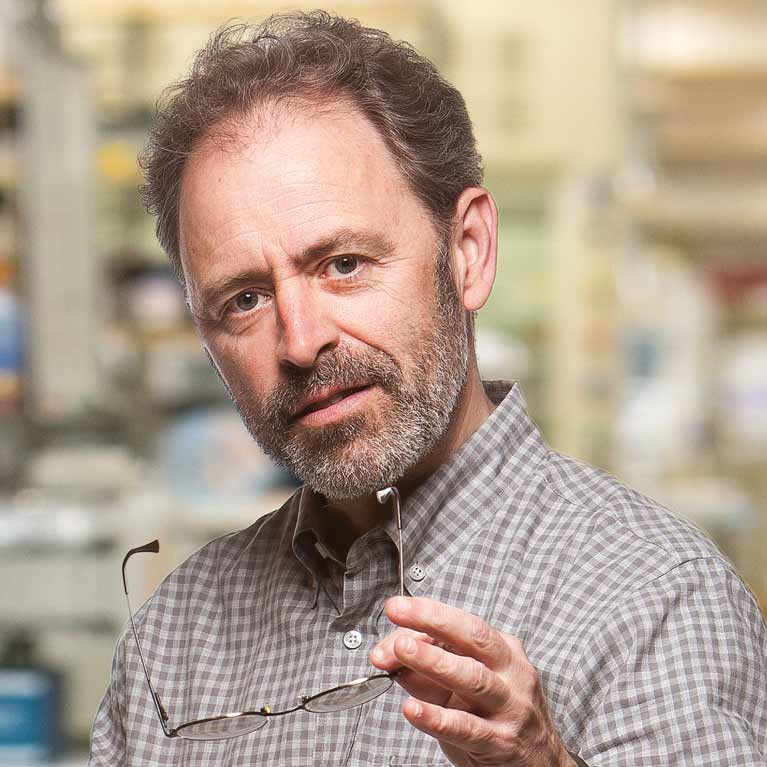Research
Marc Montminy, MD, PhD, is a biochemist and physiologist who studied how signaling molecules help coordinate cells in the body during fasting and feeding. His discovery and elucidation of a metabolic signaling molecule called CREB has led to promising therapeutic insights for treating diabetes, obesity, and insulin resistance.
Profile
Marc Montminy gave up clinical medicine in favor of following up on his PhD work, which led him to his seminal discovery of the “cAMP response element”—an important stretch of DNA necessary for creating endocrine regulating hormones called somatostatins. This discovery drove him to Salk, where he joined neuropeptide hormone expert Wylie Vale.
Metabolic signaling molecules encourage cells to absorb, process and store the sugars and fats that are newly circulating in the bloodstream after eating. During a fast, the signals switch their message, telling cells to release sugars to give the body a constant energy source. But in diabetes, communication between these signaling molecules disrupts these pathways, causing blood sugar levels to remain high.
Montminy discovered one of the key signaling molecules in this system, called CREB, and has described many of its functions. His lab also deciphered the role of another genetic switch, CRTC2. In healthy individuals, both are responsible for maintaining the right cycle of sugar storage and release throughout the day. Understanding how the signals are dysregulated in diabetics could reveal new drug targets.
Montminy is a member of the National Academy of Sciences and recipient of the McKnight Neuroscience Development Award. He received a Bachelor of Science in biochemistry from Harvard University and a combined MD/PhD in physiology from the Tufts University School of Medicine.
Prior to joining Salk, Montminy was a professor of cell biology at Harvard Medical School and director of the Laboratory of Advanced Genetic Technologies and section head of Molecular Biology at Joslin Diabetes Center in Boston.

